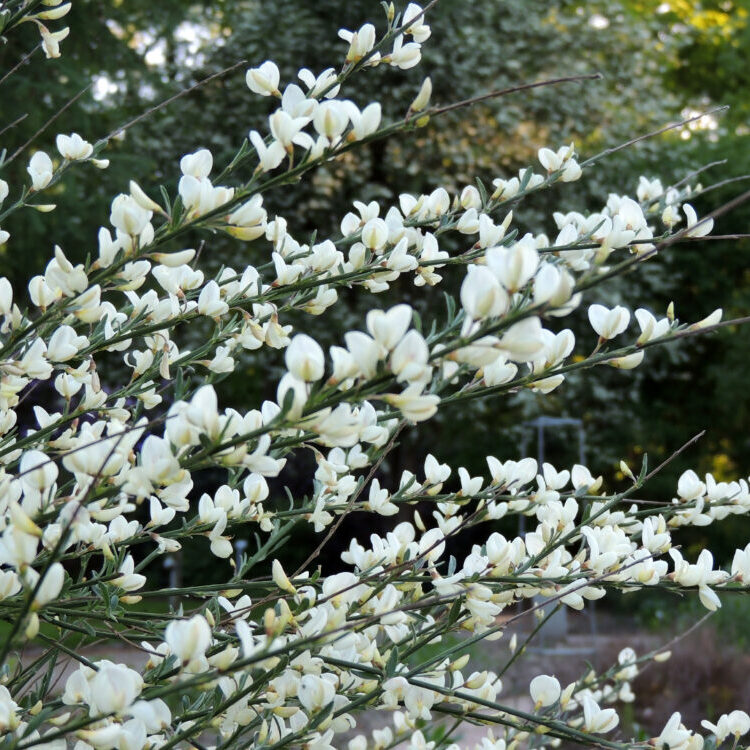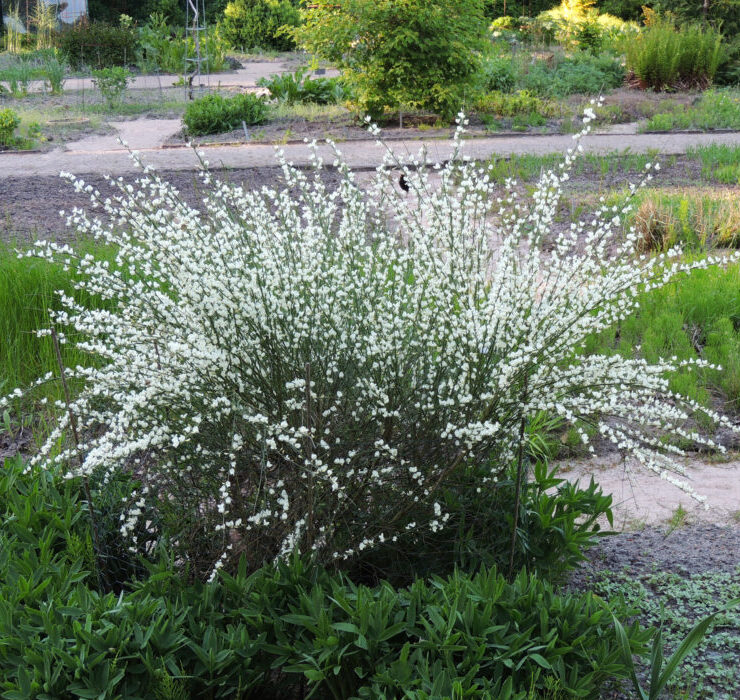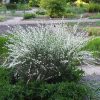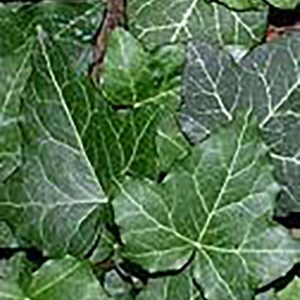Description
Cytisus is a genus of flowering shrubs in the Fabaceae family, commonly known as brooms. These deciduous to evergreen shrubs are native to Europe, North Africa, and western Asia, and are known for their showy, pea-like flowers that bloom in the spring or summer. The flowers can range in color from white and yellow to pink and purple, and are typically arranged in dense, elongated clusters along the stems. Cytisus shrubs are relatively easy to grow and prefer well-drained soils and full sun to partial shade. They are commonly used in garden borders, rock gardens, and as specimen plants, and can be pruned to maintain a more compact shape. Some popular species of Cytisus include C. scoparius (common broom), C. praecox (spring-blooming broom), and C. x praecox (hybrid broom).
Key Facts
- Common Name(s):broom ‘Albus’
- Hardiness:Fully hardy through most of the UK
- How big will I get? Cytisus x praecox ‘Albus’ can grow to a height of 1.3m and a spread of 1.5m.
- Did You Know That:The use of branches from genera known as broom is what gives the sweeping tool broom its name.
Plant Calendar
A rough guide to how this plant will change through the year.
| Jan | Feb | Mar | Apr | May | June | July | Aug | Sept | Oct | Nov | Dec | |
| Flowering Time | 
| 
| ||||||||||
| Foliage Colour |  |
 |
 |
 |
 |
 |
 |
 |
 |
| J | F | M | A | M | J | J | A | S | O | N | D |

| 
| ||||||||||
 |
 |
 |
 |
 |
 |
 |
 |
 |
Care Guide

Soil Requirements
Cytisus x praecox ‘Albus’ prefers soil with good drainage and does not tolerate standing water. This plant can grow in soil with a wide range of pH levels, it is not picky about the pH level of the soil.

Best Position
Cytisus x praecox ‘Albus’ can handle either an exposed or a sheltered position and requires full sun to thrive, this consists of more than six hours of direct sunshine per day.

Maintenance
Cytisus x praecox ‘Albus’ should be cut back after it finishes flowering will promote growth the following year by redirecting energy from seed production and foliage maintenance to root growth. However try to avoid cutting into old wood.

Pest, Diseases and Wildlife
Cytisus x praecox ‘Albus’ can have problems with gall mites, and it tends not to have problems with diseases. It is considered to be toxic.







